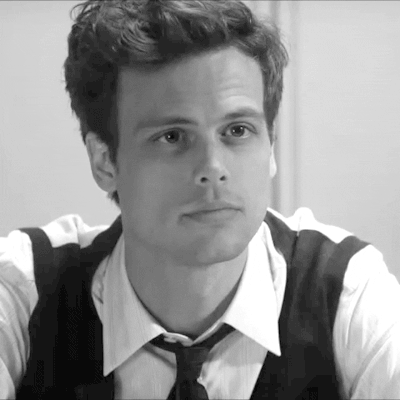Real police work and investigations are shrouded in secrecy- and therefore aren’t always properly represented on TV.

Police procedurals have been around in written format since the 1880’s. They were brought to the screen in half-documentary, half-fiction films based on real crimes in the late 1940s. 1949 radio show Dragnet was extremely popular because it depicted the dangerous and mysterious world of police work. The term “police procedural” was officially coined in 1956. The 70’s and 80’s saw a spike in the genre, which coincided with America’s very real crime problems from deindustrialization and the war on drugs. Shows like Police Story, Kojak, Hill Street Blues, Miami Vice, and 21 Jump Street in the 70’s and 80’s gave way to the Law and Order and CSI franchises of the 90’s. Since then, dozens of other shows featuring complicated cops and chaotic cases have popped up on television. These shows have got a loyal audience, too. With NCIS and Criminal Minds being some of the most popular network television shows, and Law and Order SVU now approaching its 19th season, it’s safe to say that America has an obsession with police procedurals.
However these shows can affect the way the average citizen sees the justice system. If we were to let these popular police procedurals tell it, America is a depraved cesspool of serial killers committed to decreasing the population, sexual sadists hiding behind every bush or lurking at every New York gala, and bad ass cops who always find the time to whip out a pair of sunglasses when interrogating suspects. While America certainly is a cesspool of Trump supporters and people who don’t like pineapple pizza, it isn’t exactly the kind of cesspool depicted in police procedurals. These shows rely on formulas that make the audience feel smart for being able to solve the mystery- creating die-hard fans who keep network contracts alive for years. Procedurals also rely on gruesome and jaw dropping crime scenes and storylines to keep viewers coming back, which ultimately affects how they see police and the justice system. I love Law and Order SVU and Criminal Minds for mindless binging, and I know that they’re purely fictional. But what about someone who screams Blue Lives Matter? Or someone who gets all their information about the world from the boob tube? Do they know that not all police investigations are done by the book and that not all cops are as lovable as Benson and Stabler? Probably not. They probably don’t know the following seven things either.
1) There are less serial killers in America than you may believe
In a 2009 Purdue study reported by the Alternet, people who watched crime shows estimated two and a half times more real-life deaths due to murder than non-viewers. Violent crimes aren’t happening nearly as much as they appear to be on TV. Criminal Minds, a show based on profiling serial and spree killers, has a new serial killer or mass shooter to investigate practically every week. With about 20 episodes per season and 12 seasons so far, that is about 220 serial killers, mass shooters, and child abductors profiled and caught (minus a few instances). According to criminology professor James Alan Fox, there have only been 61 serial murderers documented from 2000-2010. However, this could be explained by less serial killings being identified by police or serial killers becoming more skilled at hiding their crimes. Even still, that would mean the BAU wouldn’t be identifying murderers the way they are every week. Also telling? Violent crime has dropped significantly since the 90’s and misdemeanors have risen. But something tells me a show about cops chasing after teens who hop NYC turnstiles without paying or booking middle aged soccer moms for DUI’s won’t ever be a thing.
2) Criminal Minds Is Highly Unrealistic

Creeping right past the fact that computer hacker Penelope Garcia manages to locate people from vague and unsearchable descriptions like “a 30 something year old blonde man who prefers creamy peanut butter” (within minutes!!), the real BAU doesn’t have a private jet. In fact, they fly coach. Also completely unrealistic? Dr. Spencer Reid, who is technically too young to be such an important member of the FBI… even if his intellectual properties (also highly unrealistic) are kick ass. Lastly, those highly convenient cognitive interviews, are basically hypnosis. It isn’t admissible in court.
3) Spontaneous guilt ridden confessions are just a useful Hollywood trope.
The likelihood of an accused murderer or sociopath being tricked into admitting his guilt is slim to none. Also, you know how some TV cops can easily tell when a perp is lying? Or when the stereotypical overly dedicated cop wakes up in the middle of the night because he has suddenly realized his perp or victim was lying? Research shows even the best investigator doesn’t have more than a 50% chance of accuracy when determining guilt.
4) A little over half of all murder cases are cleared in real life.
In police procedurals, cases are usually cleared and tidied up in just 40 minutes. The way police dramas depict cold cases are highly unrealistic too. They tend to be solved within the span of a few days in the episode, but have been considered unsolvable up until this episode. *eyeroll*
5) Rape cases aren’t exactly handled with care like on Law and Order SVU
While the show creates dialogue about sexual assault and incorporates modern discourse and technology into its storylines, it presents a bright view of how sexual assault victims and suspects are handled by the justice system. Plenty of episodes have seen the offender go unpunished, but the amount of offenders who have been served justice in SVU paints an unrealistic picture. The majority of rape cases in America don’t even make it to indictments, let alone convictions. There is a severe backlog of untested rape kits. According to The Rape, Abuse & Incest National Network (RAINN), out of every 1000 rapes, 994 perpetrators go free. Sidenote: Law and Order SVU has made rape and sexual assault storylines extremely entertaining- after all, it has amassed over 400 episodes centered around child molestation, acquaintance rape, gang rape, and sexual sadism. Why do Americans like these topics so much? Is there something extremely vindicating about seeing the bad guys get served justice, or are we all just really sick? I think there is a lot to unpack in this topic, and I’ll be sure to do an essay on that soon.
6) About those Forensics…
In addition to the fact that CSI has you brainwashed into thinking DNA evidence can be found at basically any crime scene, forensics can be wrong. Furthermore, for simple crimes like assault between two people who know each other, the forensics lab isn’t even called in because its “unnecessary and too costly.” Thanks to forensic centric police procedurals, a 2008 study showed that 69% of judges think jurors have unrealistic expectations about forensic evidence. By the way, the fancy equipment of the various CSI crews are sheer fantasy. Many police stations and forensic labs are years behind in equipment and technology, which certainly affects job performance. It also takes a few hours to match fingerprints, not a few minutes. Lastly, forensic techs aren’t gun toting members of the police force as depicted in CSI…. they’re scientists. 

7)Not Everybody Gets Their Day in Court
If you’ve read Michelle Alexander’s The New Jim Crow or heard about the story of Kalief Browder, you know that there is more plea bargaining going on behind the scenes than there are actual trials in our justice system. While shows like Law and Order make it seem like every falsely accused man or woman eventually has their day in court, this simply isn’t true. For one thing, many suspects (especially in cities like NYC and LA), spend weeks to months in crowded jails waiting for arraignment and sentencing. Many don’t even make it to court to dispute accusations of guilt. The risks from being found guilty on harsh charges are just too great for some, so they often prefer to plead guilty to lesser charges. Due to three strikes laws, drug weight laws, and mandatory sentencing minimums, defendants get faced with hefty penalties for relatively minor crimes and plead out (guilty or not). Prosecutors are often encouraged to offer deals because trials can get extremely expensive.
Further Reading
8 Ways Crime Shows Like Law and Order Mess With Your Head
Watching the detectives: why the police procedural is more popular than ever
The CSI Effect: Six Reasons Why Police Procedurals Are Patently Absurd
Why One Third Of Murders in America Go Unresolved
